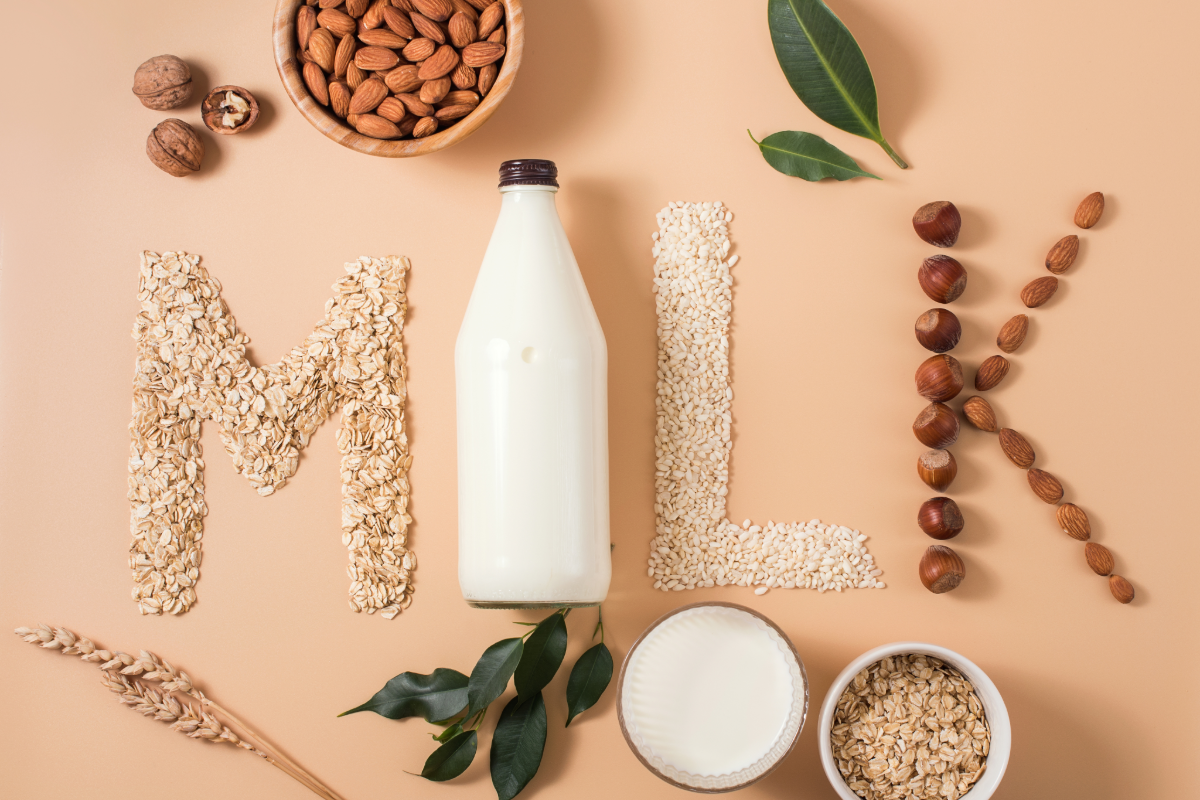Plant-based milk has exploded in popularity, gracing coffee shop menus and supermarket shelves alike. But beyond the trendy lattes, these alternatives offer a compelling case for a permanent place in your kitchen. We have the details for you here.
Beyond Lactose: Unveiling the Advantages of Plant-Based Milk
While plant-based milk is a lifesaver for those with dairy allergies or sensitivities, its benefits extend far beyond lactose intolerance:
- Naturally Hormone-Free: Modern dairy farming practices can lead to elevated hormone levels in milk. Plant-based alternatives provide a natural solution.
- Reduced Fat Content: Many plant-based milks boast significantly less fat than cow’s milk, supporting healthier dietary choices.
- Lower Sugar & Calories: Unsweetened plant-based milks typically contain minimal sugar and fewer calories compared to dairy milk.
Dairy and Inflammation
Research suggests a potential link between high dairy intake and increased cancer risks. Dairy consumption may also contribute to chronic inflammation. This inflammation is associated with various health concerns, including:
- Heart Disease: Inflammation plays a role in the development and progression of heart disease.
- Autoimmune Diseases: Conditions like rheumatoid arthritis and inflammatory bowel disease involve chronic inflammation.
- Certain Cancers: Chronic inflammation may contribute to the development of some cancers.
Can Plant-Based Milk Help?
Plant-based milk may offer an alternative for those seeking to manage inflammation. Here’s why:
- Naturally Anti-Inflammatory Properties: Some plant-based milks, such as soy milk, contain naturally occurring anti-inflammatory compounds like isoflavones.
- Lactose Intolerance: For those with lactose intolerance, consuming dairy products can trigger an inflammatory response in the gut. Plant-based milk avoids this issue.
It’s important to note that not all plant-based milks are created equal. Some may be sweetened with added sugars or salt, so be sure to check the nutrition label to choose options that align with your dietary needs.
A World of Plant-Based Delights: Exploring the Options Beyond the Dairy Aisle
From creamy oat milk to protein-packed soy, the world of plant-based milk offers a delicious and diverse playground for your taste buds! Here’s a glimpse into the exciting varieties available:
- Fruits: Explore unique options like banana milk!
- Grains: Consider rice, quinoa, or oat milk for a delightful taste experience.
- Legumes: Pea and soy milk offer a protein boost.
- Nuts: Almond, cashew, and coconut milk provide a creamy texture.
- Seeds: Hemp, sesame, and flaxseed offer unique flavors and potential nutritional benefits.
Don’t forget, each type often comes in various flavors like vanilla and chocolate, and sweetness levels ranging from naturally smooth to delightfully sweetened. Remember to check the nutrition label to ensure you’re getting the desired vitamins and minerals.
Making the Switch Smoothly
A healthcare professional or dietitian can help you create a personalized transition plan to plant-based milk. Consider a 30-day trial break from cow’s milk products to see how you feel!
More Than Just Milk: A Versatile Cooking Companion
Plant-based milks aren’t just for drinking—they can also be a versatile ingredient in your cooking. Use almond or cashew milk to create creamy sauces without the dairy, or try coconut milk for a rich and flavorful base in curries and soups. Oat milk works wonderfully in baking, adding moisture and a subtle sweetness to cakes and muffins. For those looking to boost their protein intake, soy milk can be a great addition to smoothies and pancake batter. The diverse flavors and textures of plant-based milks can enhance a wide variety of dishes, making them a valuable addition to any kitchen.
Optimizing Your Health: A Holistic Approach
Swapping to plant-based milk, alongside a diet rich in fruits, vegetables, and whole grains, becomes a powerful tool to combat chronic inflammation and support overall health. This foundation sets the stage for your body to thrive.
But true well-being extends beyond diet. Here are some additional pillars to consider:
- Quality Sleep: Aim for 7-8 hours of restful sleep each night. When well-rested, your body has the energy to fight inflammation and function optimally.
- Regular Exercise: Aim for at least 30 minutes of moderate-intensity exercise most days of the week. Exercise reduces inflammation, improves mood, and strengthens your body.
- Biomagnetic Therapy: Consider exploring biomagnetic therapy as a complementary therapy to further support your health goals.
Remember, a holistic approach is key. By combining healthy dietary choices with quality sleep, regular exercise, and biomagnetic therapy, you can empower your body to achieve optimal well-being.
Your Partner in Wellness
RA Balance Florida is here to support you on your journey to better health. Contact Us at (772-262-2679) for any inquiries or to schedule a biomagnetic therapy session. Let’s work together to unlock your optimal well-being!

